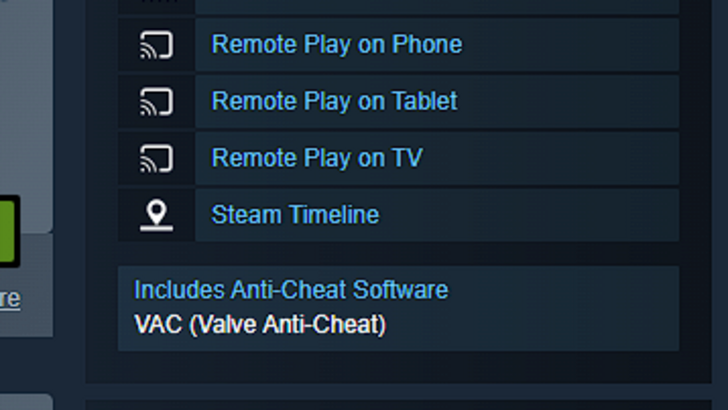 Steam introduces a new requirement for developers: disclosing the use of kernel-mode anti-cheat systems. This move aims to improve transparency and address player concerns. Read on for details.
Steam introduces a new requirement for developers: disclosing the use of kernel-mode anti-cheat systems. This move aims to improve transparency and address player concerns. Read on for details.
Steam's Enhanced Anti-Cheat Disclosure
Mandatory Kernel-Mode Anti-Cheat Declaration
 Valve's recent Steam News Hub update reveals a new tool within the Steamworks API ("Edit Store Page"). This allows developers to specify whether their games employ anti-cheat software. While disclosure for non-kernel-based systems remains optional, kernel-mode anti-cheat implementation is now mandatory. This addresses widespread player anxieties about the potentially intrusive nature of these systems.
Valve's recent Steam News Hub update reveals a new tool within the Steamworks API ("Edit Store Page"). This allows developers to specify whether their games employ anti-cheat software. While disclosure for non-kernel-based systems remains optional, kernel-mode anti-cheat implementation is now mandatory. This addresses widespread player anxieties about the potentially intrusive nature of these systems.
 Kernel-mode anti-cheat, directly examining processes on a player's system to detect malicious activity, has been a subject of debate. Unlike traditional methods focusing on in-game patterns, kernel-mode access to low-level system data raises concerns about performance, security, and privacy.
Kernel-mode anti-cheat, directly examining processes on a player's system to detect malicious activity, has been a subject of debate. Unlike traditional methods focusing on in-game patterns, kernel-mode access to low-level system data raises concerns about performance, security, and privacy.
This update reflects Valve's response to developer and player feedback. Developers sought clearer ways to communicate anti-cheat details, while players demanded increased transparency regarding anti-cheat services and any associated software installations.
 Valve's official Steamworks blog post states, "We’ve heard from developers seeking better ways to share anti-cheat information. Simultaneously, players have requested more transparency about anti-cheat services and any additional software." This change benefits both developers and players by fostering open communication.
Valve's official Steamworks blog post states, "We’ve heard from developers seeking better ways to share anti-cheat information. Simultaneously, players have requested more transparency about anti-cheat services and any additional software." This change benefits both developers and players by fostering open communication.
Mixed Community Reception
 Launched October 31, 2024, at 3:09 a.m. CST, the update is already live. Counter-Strike 2's Steam page now clearly displays its use of Valve Anti-Cheat (VAC), showcasing the change.
Launched October 31, 2024, at 3:09 a.m. CST, the update is already live. Counter-Strike 2's Steam page now clearly displays its use of Valve Anti-Cheat (VAC), showcasing the change.
While many applaud Valve's "pro-consumer" approach, criticism exists. Some commenters noted grammatical inconsistencies and awkward wording in the display. Practical concerns were also raised, such as language translation and the definition of "client-side kernel-mode" anti-cheat, with PunkBuster cited as a relevant example. The ongoing debate surrounding the invasiveness of kernel-mode anti-cheat persists.
 Despite the mixed initial reaction, Valve's commitment to pro-consumer platform improvements is evident, highlighted by their transparency regarding a recent California law protecting consumers from misleading digital goods advertising. Whether this fully addresses community concerns about kernel-mode anti-cheat remains to be seen.
Despite the mixed initial reaction, Valve's commitment to pro-consumer platform improvements is evident, highlighted by their transparency regarding a recent California law protecting consumers from misleading digital goods advertising. Whether this fully addresses community concerns about kernel-mode anti-cheat remains to be seen.















